How to use video to grow B2B SaaS
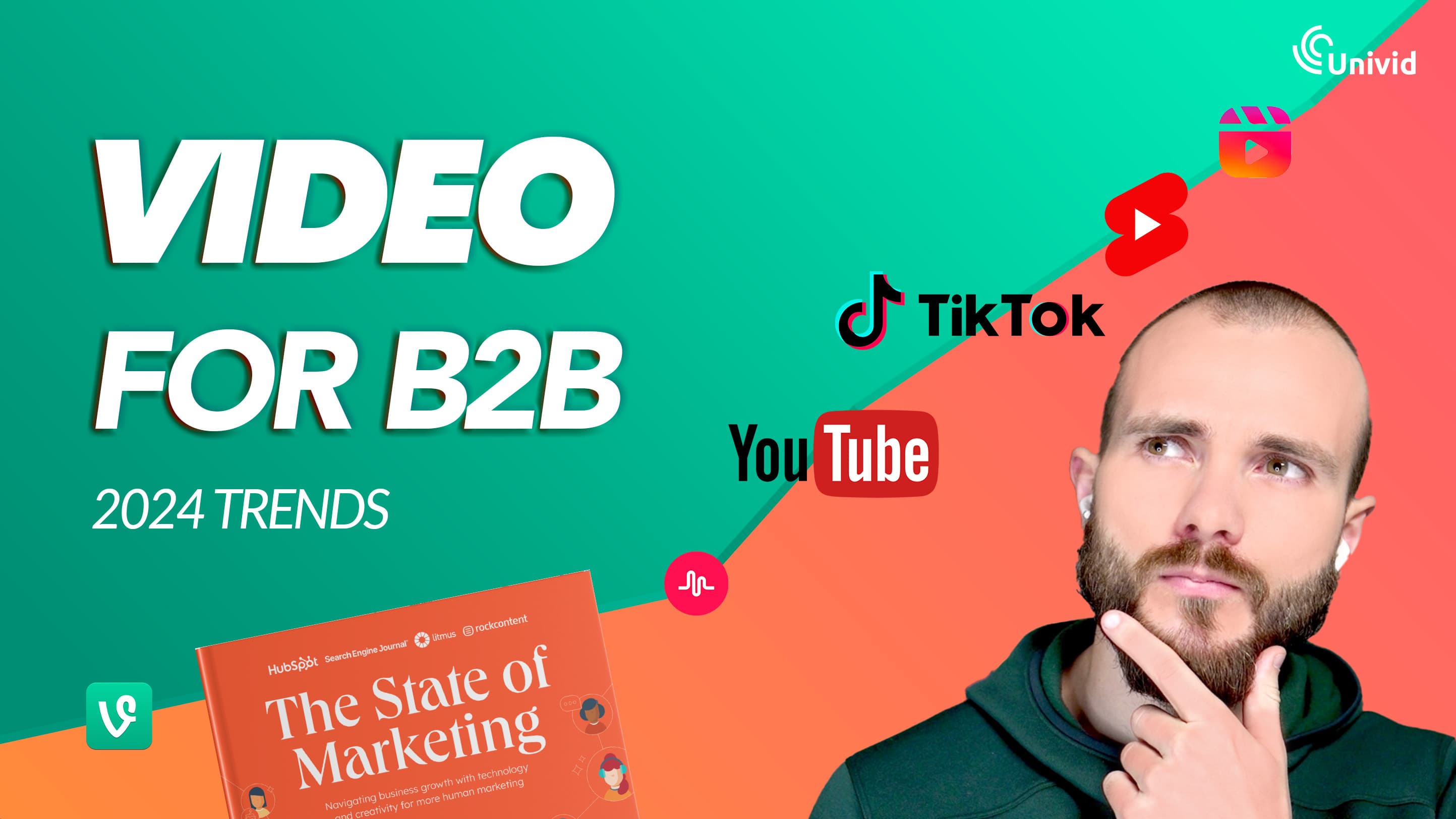
Contents
Video trend 1: More short form video for B2B?
Most likely, yes. But, more importantly your ideal viewer persona (IVP) decides YOUR mix of long and short format. Also, factors like ACV, what type of buying journey and persona you have - determine the likelihood you can use short form to actually convert. Or (more likely) what mix of long format content you need to make it happen.
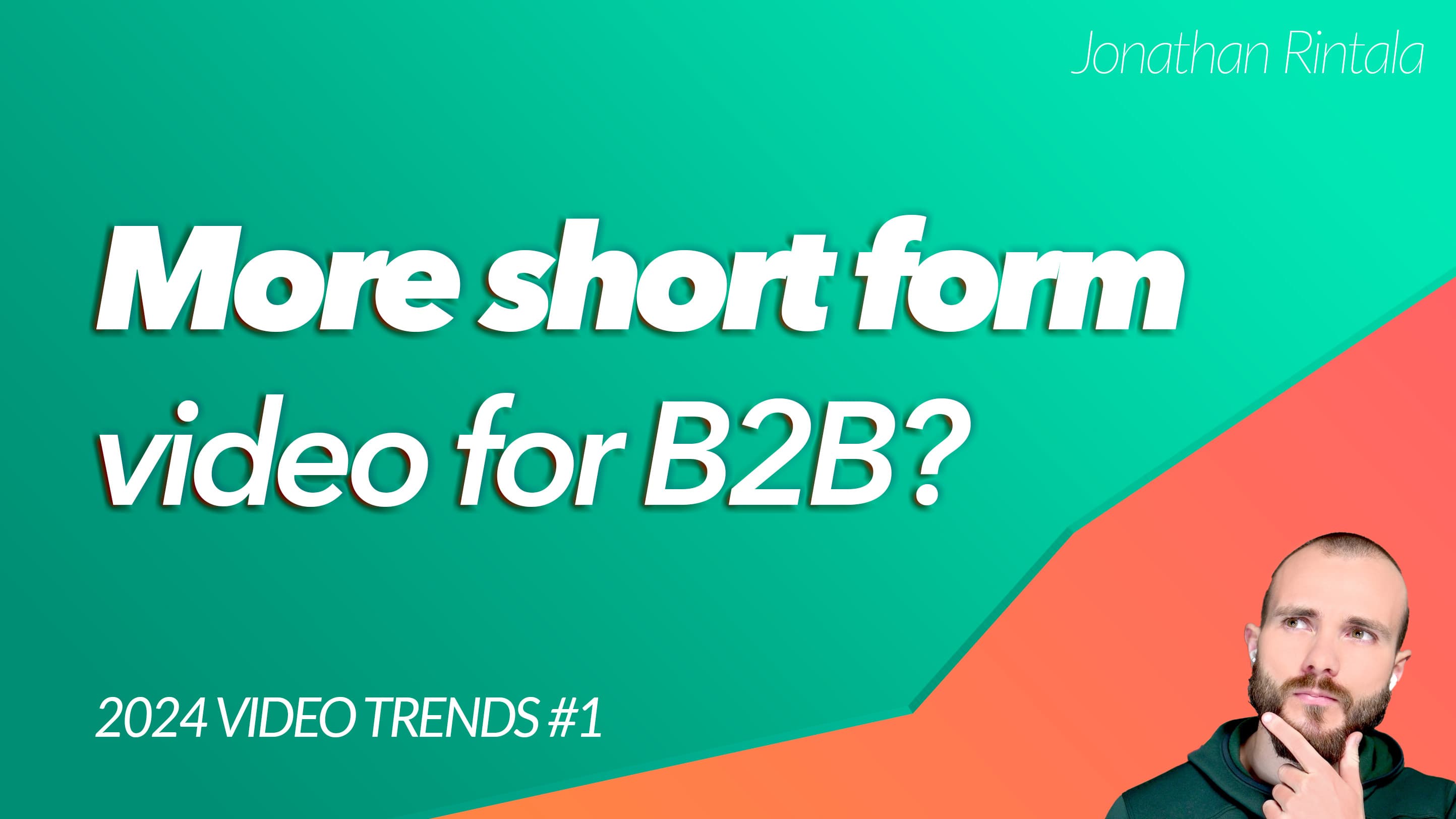
B2B SaaS Video Trend #1: More short form video for B2B?
Your Ideal Viewer Persona
As a SaaS professional, founder, or growth marketer - you are surely familiar with the ICP (Ideal Customer Persona) as a tool to make sure you build the right thing, position your SaaS to win, and choose the right marketing mix.
When producing video content - defining your ideal viewer persona (IVP) is just as important as having a narrow ICP - making sure your content is hyper relevant and make your viewers subscribe, become ambassadors, and convert.
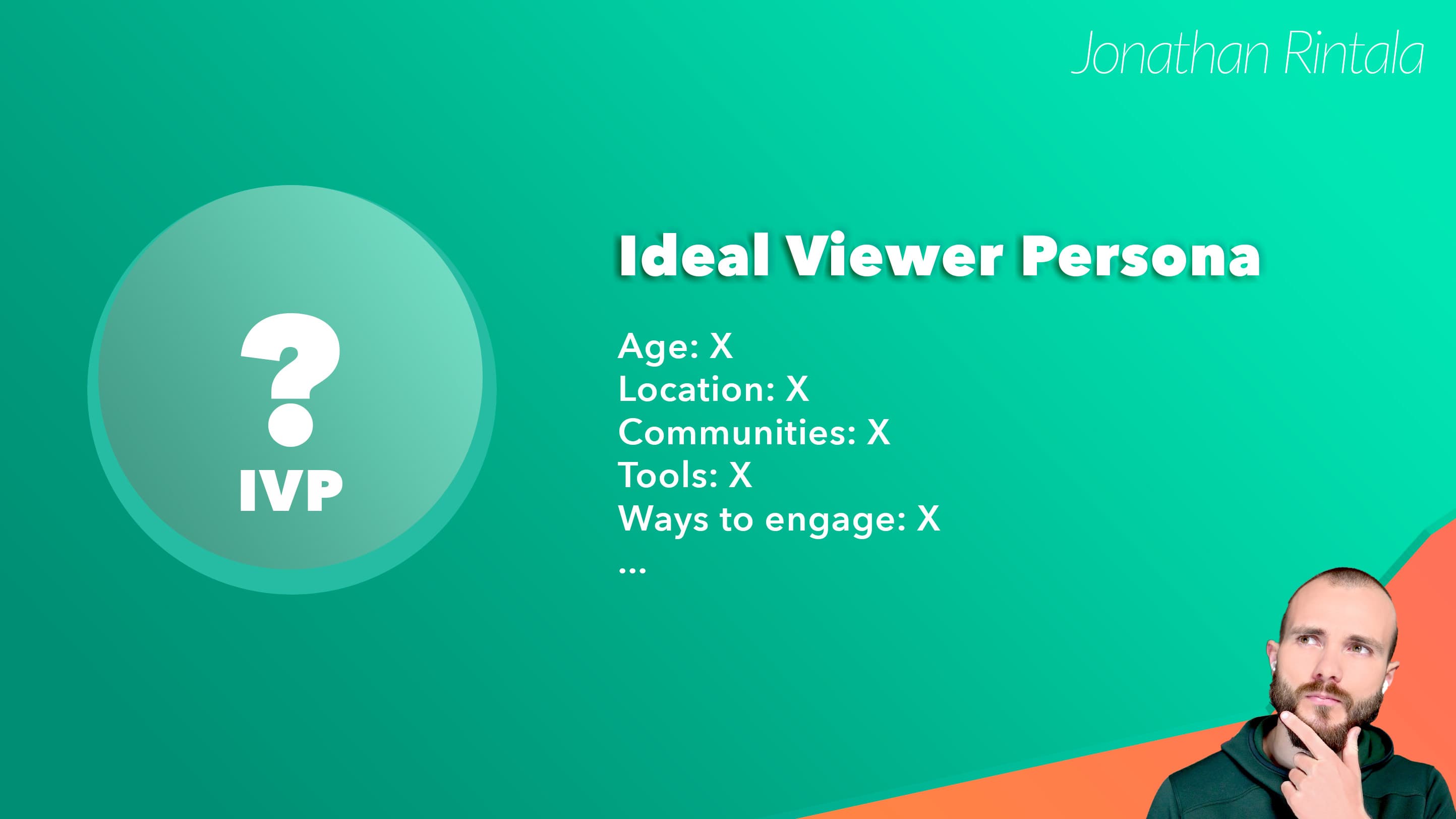
Your perfect content mix depends on your IVP and what type of deals you are targeting. Typically, B2B offerings require longer watch times in order to build authentic relationships with the prospects, that are needed to convert.
ACV vs. content length
As a B2B SaaS, both your IVP and your Annual Contract Value (ACV) determine the mix of lengths and formats of how to deliver your content.
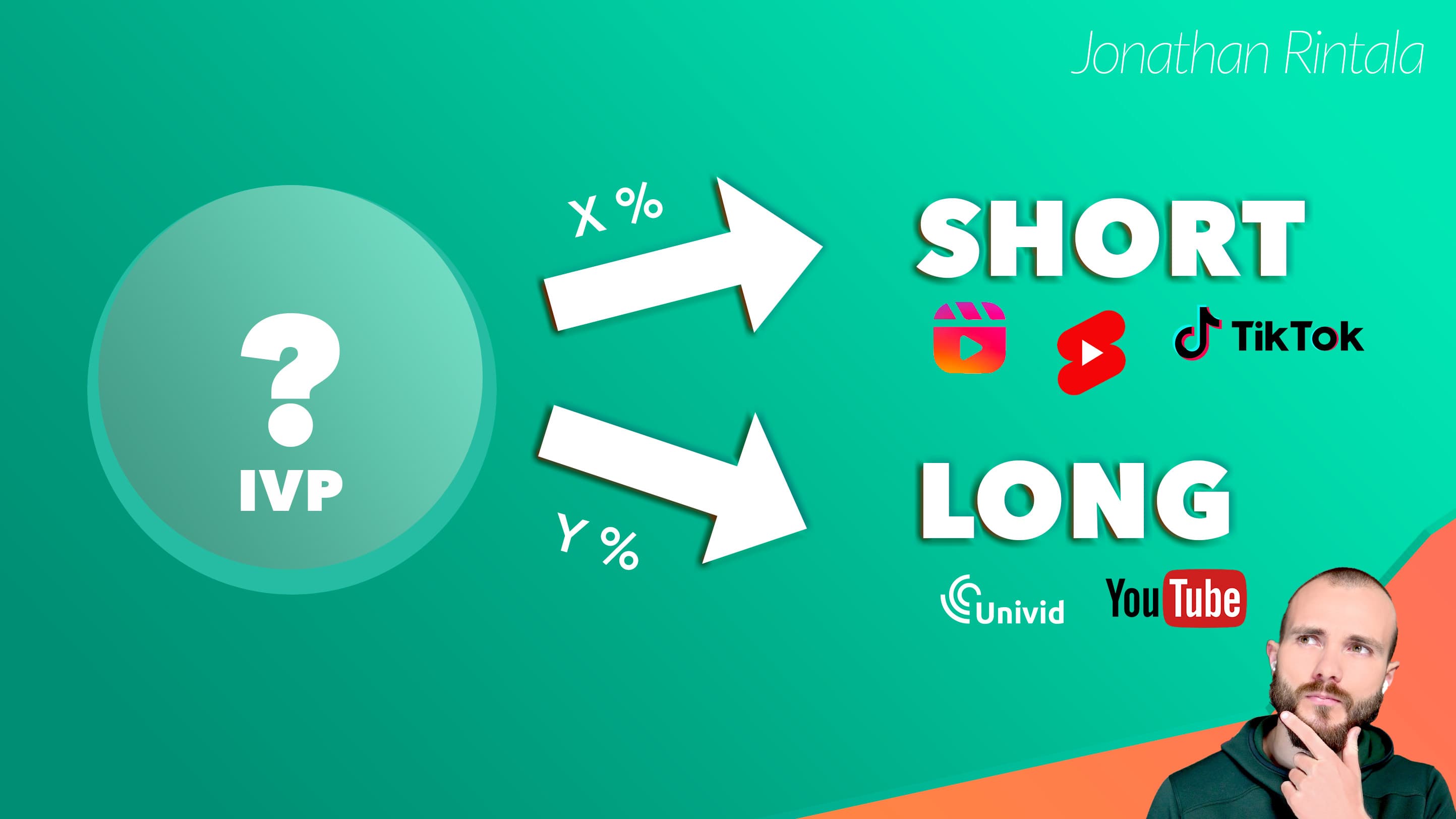
Let's exemplify:
A) Lower ACV, easy to understand type of products of PLG (product-led-growth) character that target individual buyers within companies. i.e. close to the consumer and can convert to freemium signups easily.
Split between shorts/long format: Shorts should be an active part of your strategy to both drive conversions and build awareness / thought leadership / employer branding.
How to use shorts: Conversions to freemium signups, and awareness / buzz
For example: Canva, Notion, Adobe
B) Higher ACV, enterprise type of products that are more complex, need to engage multiple stakeholders, require a larger implementation, or multiple meetings to convert a prospect.
Split between shorts/long format: Keep shorts as experimental and focus them on driving towards your long format content. Continue leveraging long format as this is where conversions happen.
How use shorts: Brand awareness, generate buzz and drive signups for webinars and other longer form content. And use shorts for employer branding and HR will love you.
For example: HubSpot, G2, AWS
Short history of the consumer video space
Let's look at what has happened in the consumer video space, to understand what is happening in B2B SaaS and how you should build a video growth playbook to win.
Recent years: Short format is on the rise
During recent years short form content has become increasingly popular. As attention spans shorten and platforms like Vine and Musical.ly gained traction featuring max 6s videos - what eventually grew into the mega platform TikTok.. Then also Instagram and Youtube wanted to compete on the short format scene - adding Youtube Shorts and IG Reels.
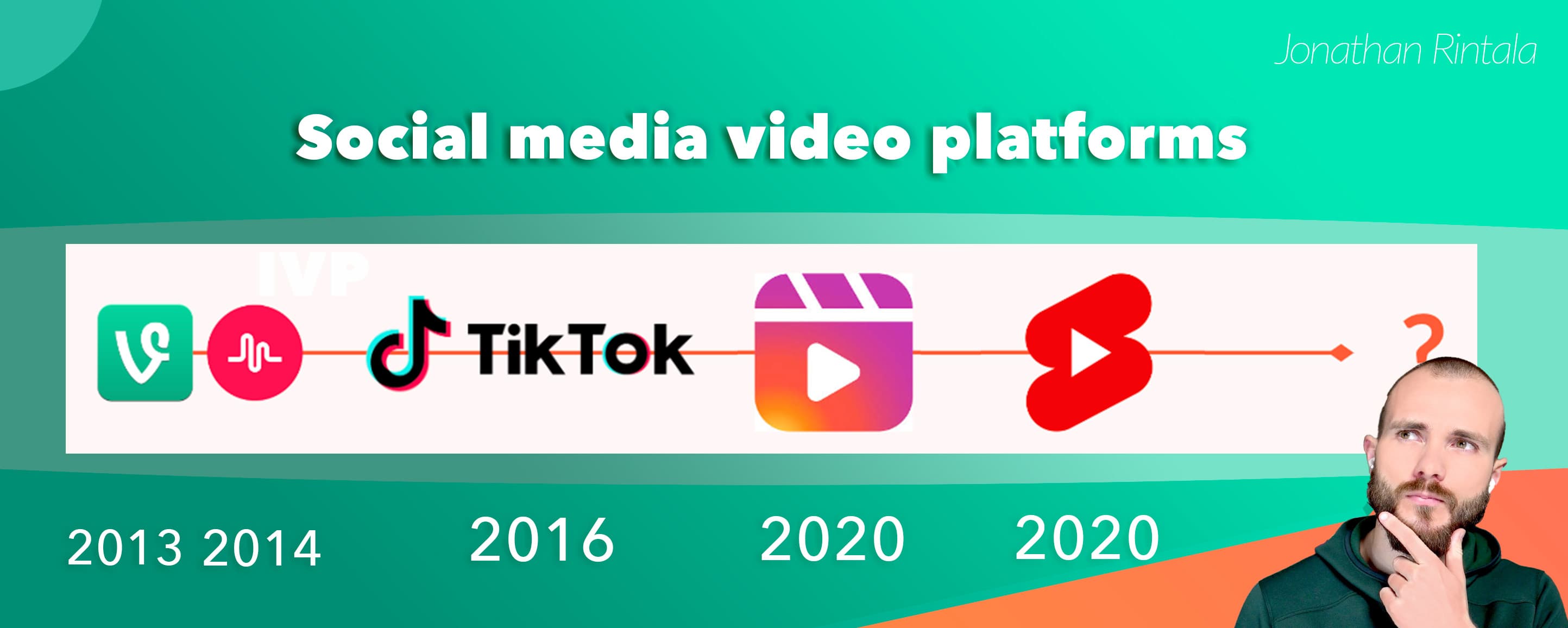
The evolution of short-format video
Consequence: RIP traditional media

Traditional media is struggling. Linear TV is not very popular amongst Gen Z - and CXOs having a tougher time rationalizing spending large on traditional formats, like TV, where reach is declining, targeting is limited, interaction non-existent, and trackability is lacking.
Feature | Traditional media (TV, outdoor, etc) | Modern media (online webinars, shorts) |
|---|---|---|
Reach | Declining, young demographies not interested | Growing, massive opportunity |
Trackability | Very difficult and highly restricted | Track everything in detail, avg. watch time, segments, who watched, interacted, etc. |
Interactivity | None, rather one-way communication | Highly interactive in real-time or async via comments, etc. |
Personalization | Broad targeting, appeal to the masses | Hyper personalize to make your IVP convert |
Targeting | Broad and limited options to target, hopefully your IVP is in there somewhere | Know exactly what demographies and IVP to target |
Traditional media vs. new media
Hyper personalized and authentic content, built by creators in modern media formats, is the future of how to grow B2B companies.
However, as B2B offering tend to be more complex - you cannot just rely on the short form 6s videos to drive conversions. You need long-form content as well. And this is something the social media video platforms realized lately too..
Now: The race to win long-format is on
Youtube is king for long-form video on the consumer side. In 2020, adding Youtube Shorts to compete with TikTok and Instagram Reels - and reap demand on the short format side.
Now the other social media video platforms want in on the long-format action as well - realizing there is value beyond shorts.
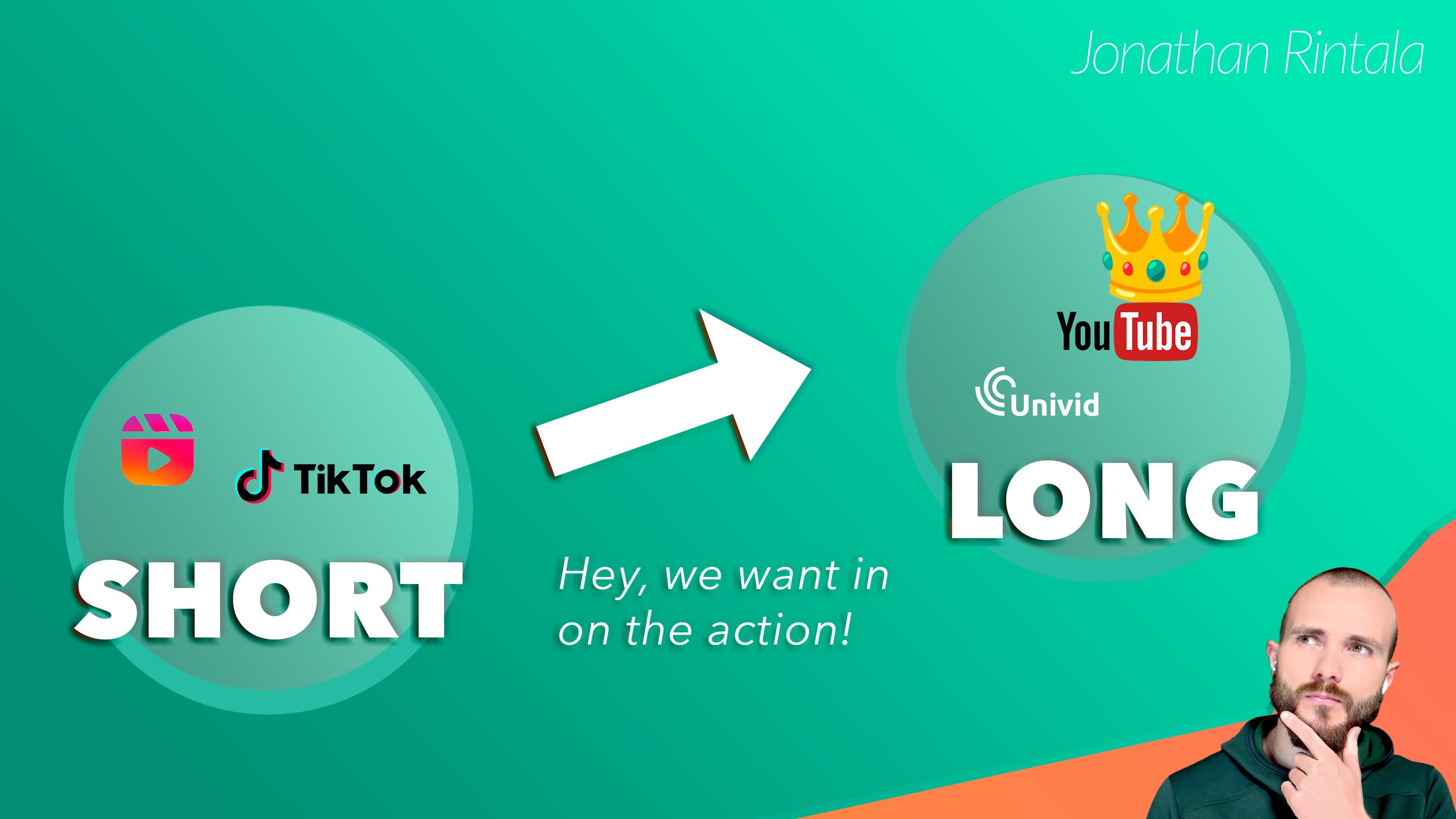
Three interesting stats around this trend:
TikTok have increased their maximum video length from 60 seconds to 10 minutes, and are now piloting 15 minute videos with selected users
TikTok has explicitly stated in March 2024 that their Creator Rewards Program reward creators who produce "high quality videos over a minute long with an optimized rewards formula focused on 4 key areas: originality, play duration, search value and audience engagement."
Instagram Reels just recently upped their maximum length from 60 seconds -> 10 minutes
Naturally, long-form live video in the form of webinars are still dominating top-of-funnel in terms of generating quality leads for B2B. But you need to be smart with how you balance out the mix with shorts to squeeze the most results out of your content efforts.
For example, run shorts in organic posts on LI as teasers for the upcoming webinar to drive signups. Have the webinar speakers welcome potential attendees to the webinar, introducing the topic and creating buzz. Make it interactive, ask a question, and spark a conversation. Let the potential audience give input on topics.
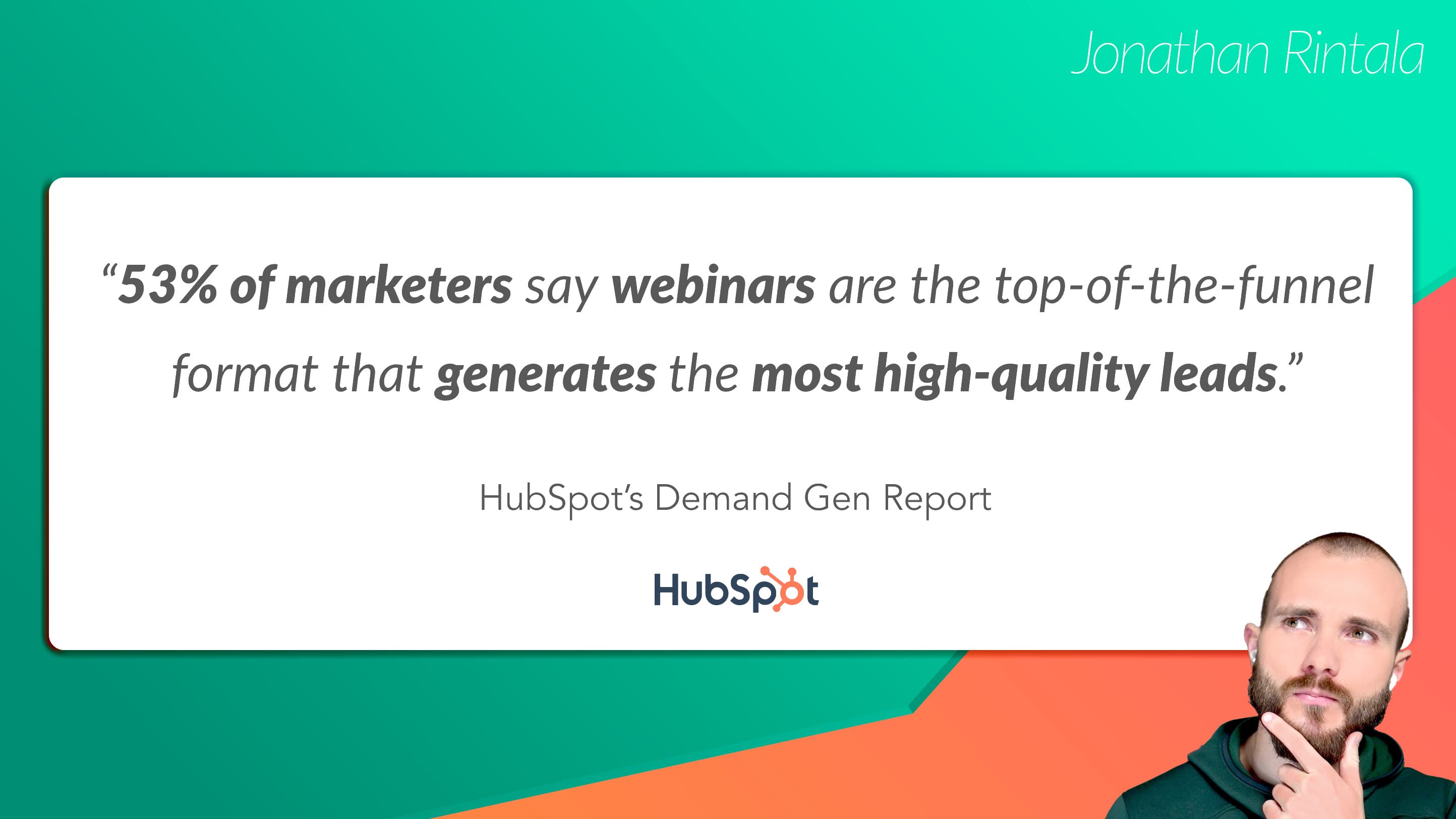
Video trend 2: Going live vs. pre-recorded?
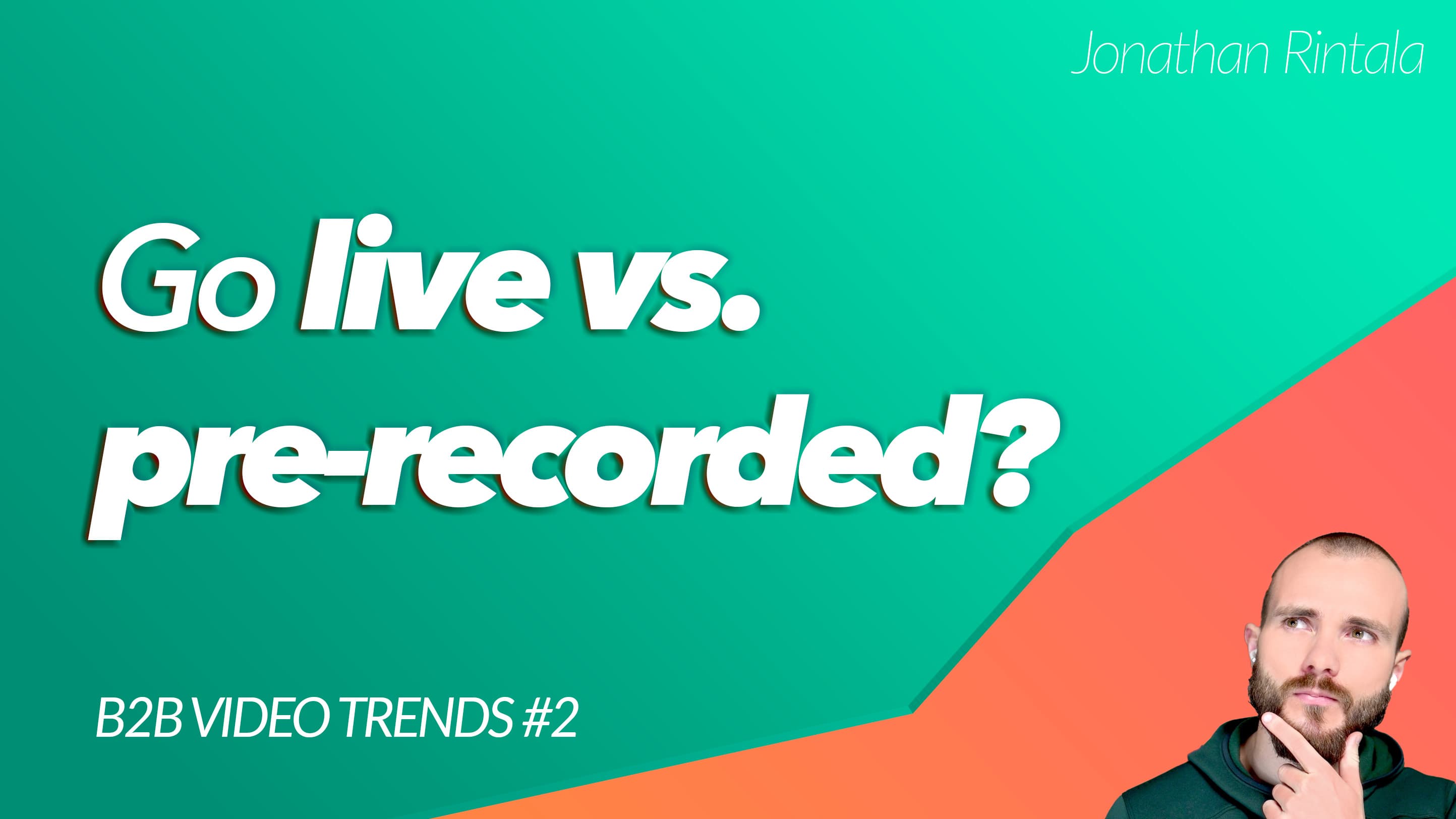
B2B SaaS Video Trend #2: Go live vs. pre-recorded?
Higher conversion vs. resource efficiency
Building long-form content as a B2B is done through either live, pre-recorded, or on-demand video. They each have some pros and cons.
Type of format | Conversion level | Resource efficiency |
|---|---|---|
On-demand | Low | High |
Pre-recorded (simulated) | Medium | Medium |
Live | High | Low |
Comparison of types of video formats
The live format, often done through webinars, usually require the most resources to produce, as you have to A. prepare, B. get signups, AND C. run things live.
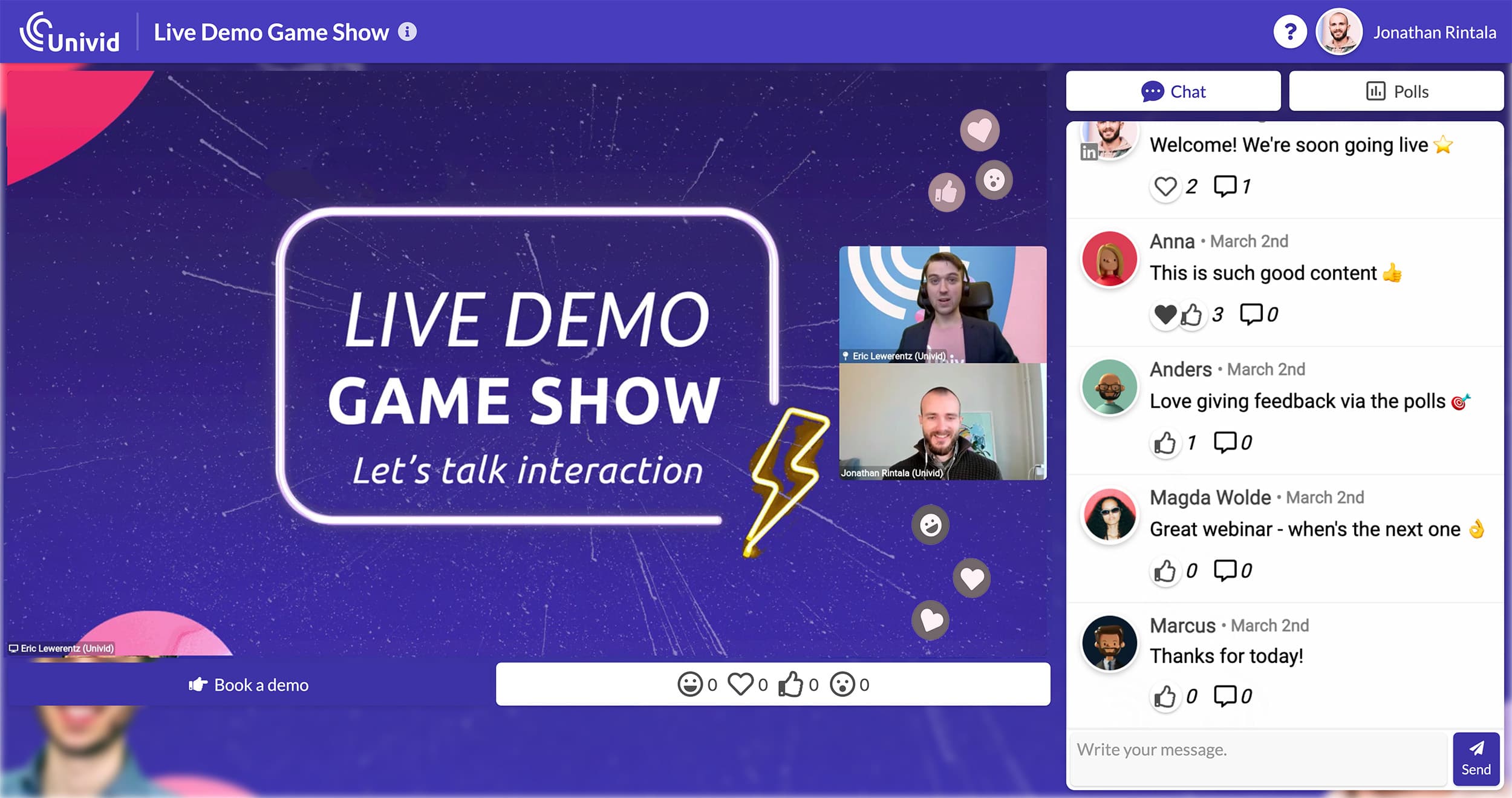
Live B2B SaaS webinar with interaction in Univid
However, it does not always have to be the case - as lots of time people require higher production quality when watching on-demand videos - that can involve a ton of editing and adjustments. Also, the authenticity and transparency you get by going live, means you build strong relationships, fast. Thus, live webinars are a popular tool in the marketing mix for B2B going into 2024 as well.
Typically, in a well produced live webinar - both average watch time and interaction is high. Thus, live formats have the highest conversion rates.
When deciding on the mix that is right for you - consider the following:
How much is a qualified view worth to you?
Is it super expensive generating qualified views in your IVP, or do you offer an enterprise product with high ACV - where every webinar signup is worth a ton to you? Well, then you should probably maximize your shots to convert - and focus on going live more.
Do you target a lower ACV, or can generate a ton of relevant signups for your webinar? Well, then you can focus on running things more efficiently (and frequently) through simulated live or pre-recorded content.
Transparency wins
In B2B, relationships and trust builds business and drives growth. Something Spin Selling talks about from a sales perspective.
Therefore, always put transparency first. Never try to trick your audience by pretending a webinar is "live" when it's pre-recorded and simulated.
Rather, be up-front up the pre-recorded part, and offer a live Q&A at the end. Or simply, tell them you will be there in the chat to answer any specific questions.
How to get the best of the two worlds
A recommendation to combine the benefits of pre-recorded and live, is to run live webinars, with pre-recorded sections.
The pre-recorded sections can simply be a short fast-paced demo of your product, a show reel, recap of the product release, or a cinematic introduction.
This way, you can give the viewers the best possible experience and show that you value your audience by putting effort into the content.
And you get the converting benefits with live, as you can connect with your audience and, exclusively, answer their burning questions live.
Repurposing live webinars can be an excellent way to get the authenticity of the live webinar - yet, get efficiency in terms of shorts, an on-demand version that you can share on social media and build your content bank with afterwards.
Video trend 3: Are attention spans down?
Yes, attention spans are down - and need for engagement is up. You need high average watch time to win - both for Youtube and TikTok:s algorithms, as well as for webinars.
And as we concluded B2B offerings typically require longer format to convert.
So, you still need your ideal viewers to stick around for your content for quite some time - to build a trusting relationship, have them understand your offer / USP, and make them convert. How do you do this?
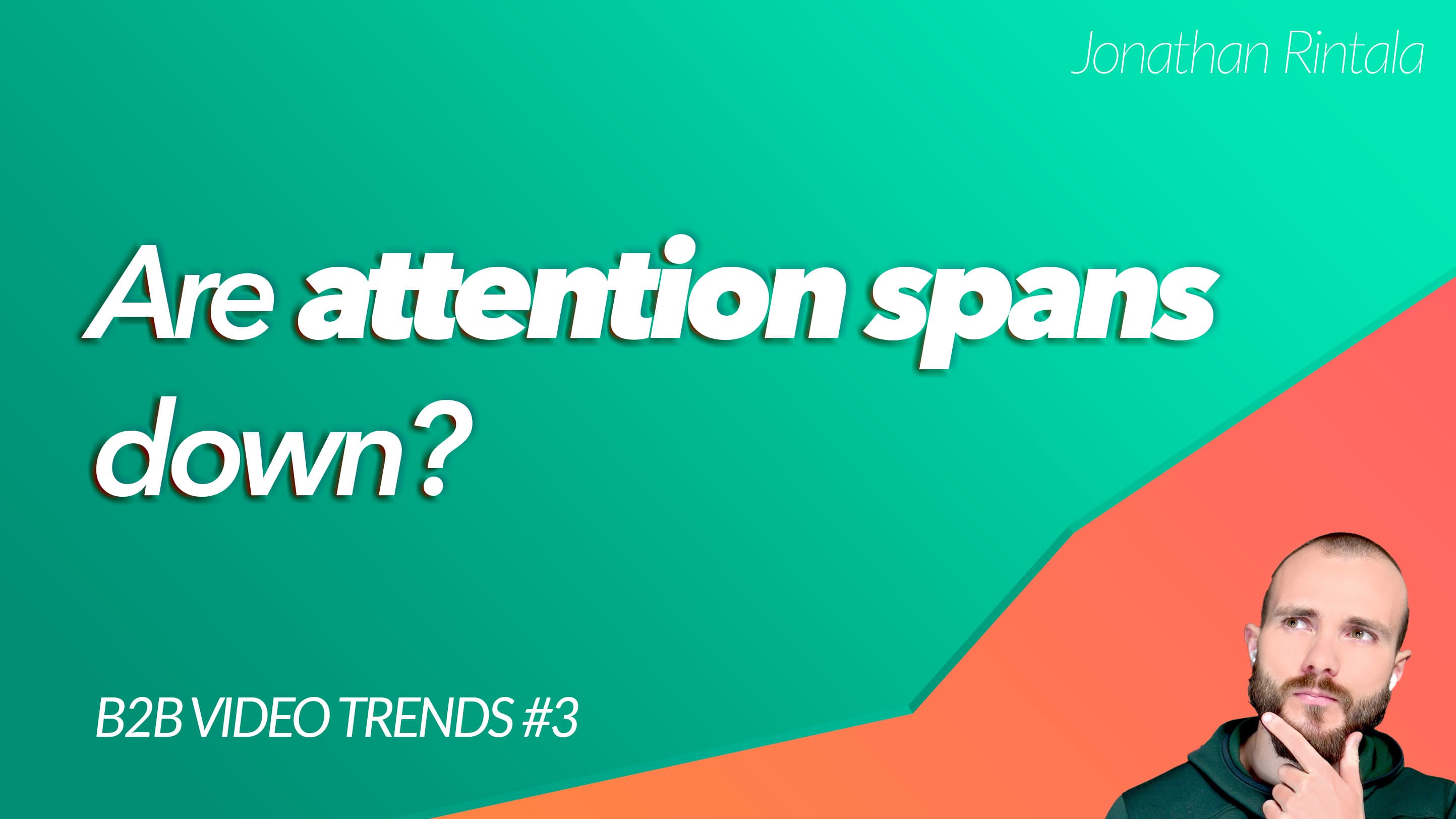
B2B SaaS Video Trend #3: Are attention spans down?
Well, simply producing video content is not enough..
There are a few tools to your disposal: A-E.
A (A) good topic and (B) interesting content is key. But without a (C) strong hook to introduce, and (D) sticky glue to keep people watching - your viewers will not stay around.
The cool thing about going live - is leveraging the fact that you can also (E) interact with the audience, beyond async answers in a comment section. By using interaction, you can come out on top, despite having prepared content of lower quality (spending less time on the preparation phase).
The interaction will give the audience:
answers to their specific questions
learnings from peers in the industry
relationships with experts or thought leaders in their field
Interaction is what makes people stay and convert. This is something leading marketers have picked up for 2024, where they want to try 1. more live streaming of video and 2. create more interactive content for size (HubSpot's State of Marketing Report 2024).
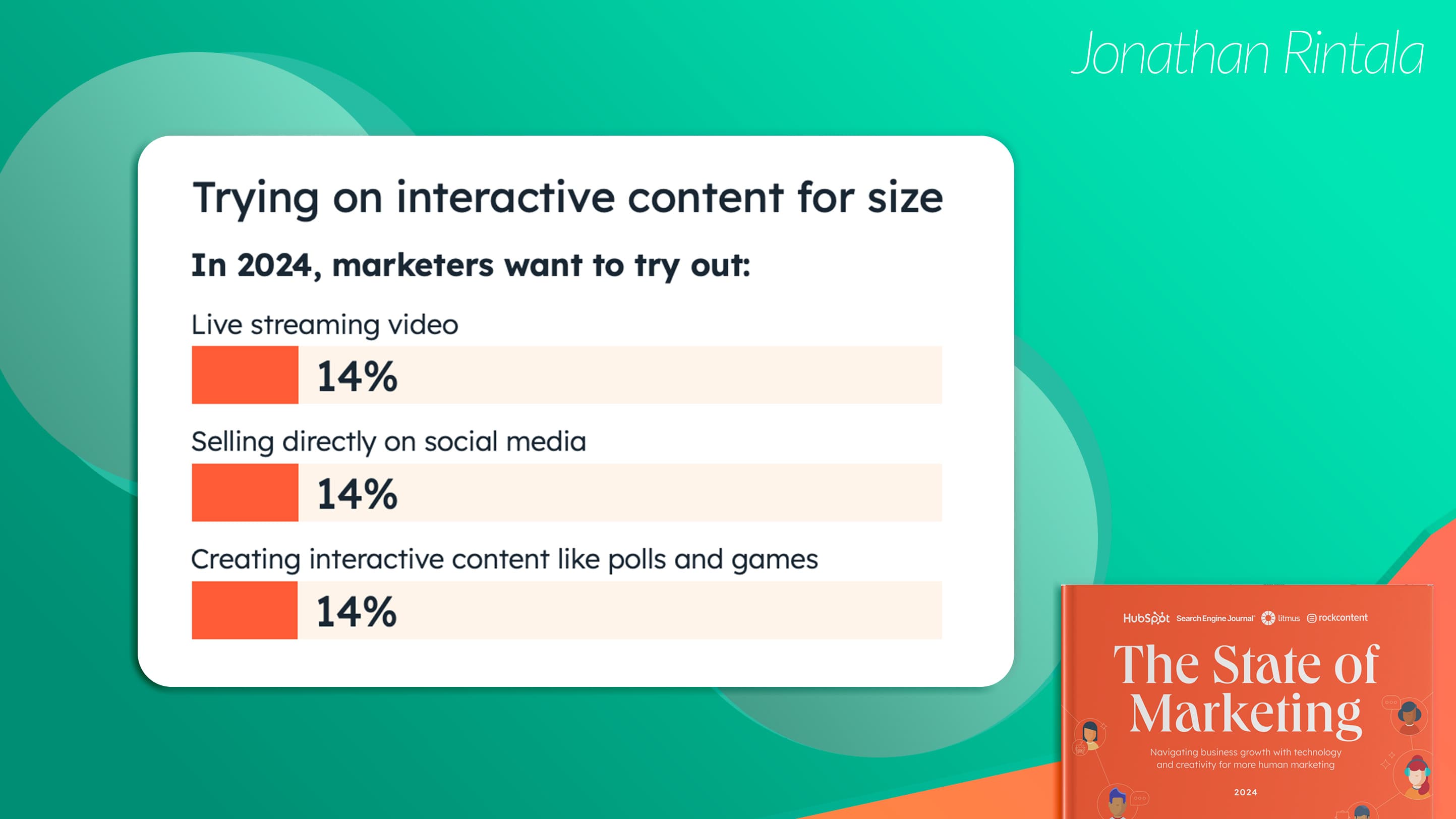
And remember - give your ICV value they can’t get somewhere else - and you will see conversions.
Webinar: Video marketing trends 2024
If you liked this article - here is a webinar where I talked about these topics in more depth "Host webinars like the top 1% - Webinar tips and video marketing trends in 2024" by Jonathan Rintala & Eric Lewerentz from Univid.
The three video marketing trends for 2024 are highlighted and presented in more depth - and focusing on the webinar format. Check it out and find out how you can leverage long/short form video to drive more B2B conversions in 2024 and beyond.
Want to learn more about growing SaaS companies?

